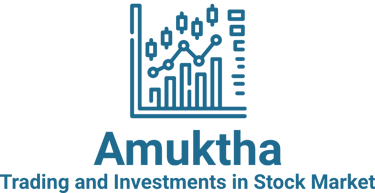Trading Risk Management: The Key to Success
Risk Assessment: The Key to Retention
As a trading mentor, I often see traders make the mistake of focusing too much on the potential upside of a trade and not enough on the risk factors involved. This can lead to disastrous results, as even the best trades can go wrong if the risk is not properly managed.
That's why I always emphasize the importance of risk assessment to my students. It's not just about the gains you achieve, but rather the gains you retain. If you don't properly assess the risks involved in a trade, you could end up losing more than you gain.
So how do you do risk assessment? There are a few key things to consider:
The size of your position: The larger your position, the greater the risk. If you're not comfortable with the amount of risk involved, then you should reduce the size of your position.
Your stop-loss: Your stop-loss is the price at which you'll exit a trade if it goes against you. It's important to have a stop-loss in place so that you don't lose more money than you can afford to lose.
The market conditions: The market conditions can also affect the risk of a trade. For example, if the market is volatile, then the risk is higher.
Once you've considered these factors, you can start to assess the risk of a trade. If the risk is too high, then you should either avoid the trade or reduce the size of your position.
I know that it can be tempting to ignore the risk factors and just focus on the potential upside. However, I urge you to resist this temptation. Risk assessment is essential for long-term success in trading.
Here are a few additional tips for risk assessment:
Use a trading risk management calculator: There are a number of trade risk management calculators available online. These calculators can help you to determine the size of your position and your stop-loss based on your risk tolerance.
Backtest your trading strategy: Backtesting is a great way to test your trading strategy under different market conditions. This will help you to identify the risks involved in your strategy and to make sure that it is profitable in the long run.
Get feedback from a mentor: If you're not sure how to assess the risk of a trade, then get feedback from a mentor. A mentor can help you to identify the risks involved in your trades and to develop a trading risk management plan.
Risk assessment is an essential part of trading. By following these tips, you can improve your risk management skills and increase your chances of success in the markets.
Here are some final thoughts on risk assessment:
Risk assessment is an ongoing process. The market conditions are constantly changing, so you need to be constantly re-assessing the risks involved in your trades.
Risk assessment is not about avoiding risk altogether. It's about managing risk so that you can stay in the game and continue to trade profitably.
Risk assessment is a skill that can be learned and improved over time. The more you trade, the better you'll become at assessing risk.
So don't be afraid to take risks. Just make sure that you're properly assessing the risks involved before you do.
Disclaimer:- Trading in securities markets carries substantial risk and is not suitable for everyone. Past performance is not indicative of future results. This article is for educational purposes only and should not be construed as investment advice. Always conduct your own research and consider consulting with qualified financial professionals before making trading decisions.
